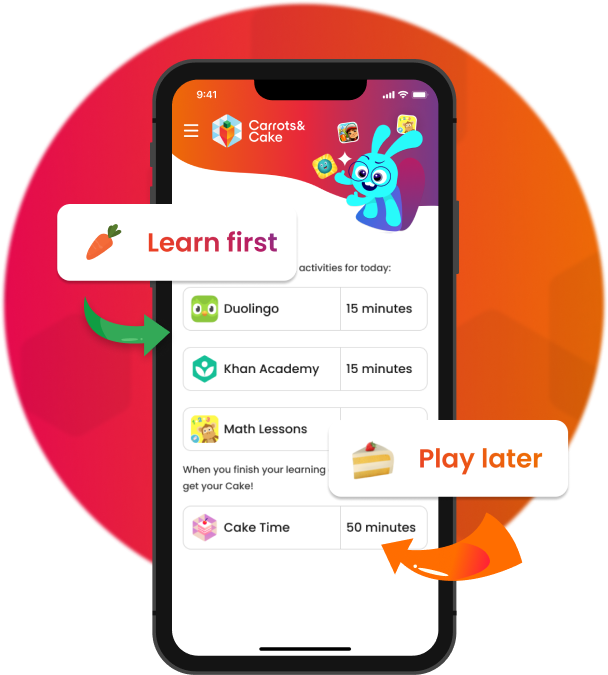

Gentle parenting is an approach to child-rearing that emphasizes empathy, respect, and understanding in order to foster strong connections between parents and their children aged 3-10 years old while promoting healthy emotional development. This style of parenting is a way of rearing that focuses on empathy, respect, and understanding in the upbringing of children aged 3-10. This method fosters strong connections between parents and their children aged 3-10 years old while promoting healthy emotional development.
In this blog post, you will discover the principles of gentle parenting—and how they align with the Montessori method—while learning to recognize triggers and set clear expectations for your younger children. We will also explore effective ways to handle conflicts through kindness and empathy while fostering essential qualities such as responsibility, respect, and empathy in your kids.
Finally, we will delve into the numerous benefits that both parents and children can experience by adopting this gentler approach to raising kids. So join us on this journey towards creating a more harmonious family life through gentle parenting.

It encourages a partnership between parents and their children in making choices based on an internal willingness instead of external pressures. This peaceful style shares similarities with the Montessori method by emphasizing keen observation and teaching children how to treat others with care.
In gentle parenting, decisions are made collaboratively between parents and their children. By involving kids in decision-making processes, they feel more respected and valued as individuals. Parents can guide them through various options while considering their feelings, thoughts, and preferences - ultimately empowering them to make informed choices for themselves.
The Montessori method is an educational philosophy that emphasizes self-directed learning through exploration and discovery within a carefully prepared environment. Like gentle parenting, the Carrots&Cake app values independence, respect, and cooperation among its core principles. Children are encouraged to learn at their own pace, develop problem-solving skills, and to take responsibility for their actions
Gentle parenting is an effective way to foster positive relationships between parents and children, as it emphasizes partnership-based decision-making. By recognizing triggers and setting clear expectations, we can better equip our kids with the skills they need for success.
One key aspect of gentle parenting is helping children learn empathy, respect, and responsibility towards themselves. These qualities make them more likely to become empathetic, respectful human beings later in life. When dealing with sibling conflicts or other challenging situations involving young children aged 3-10 years old, it's essential for parents to gently guide them through normalizing emotions and developing coping mechanisms for stressful moments throughout their lives.
Parents should intervene when sibling rivalry becomes a problem to ensure the siblings have healthy relationships. To do this effectively, use the principles of gentle parenting:
Rather than repeatedly saying "no" or resorting to punishment when setting boundaries with your kids, Sarah Ockwell-Smith, a prominent advocate for this style of parenting, suggests calming down your child before teaching any lessons. This approach allows you both time to process what has happened and enables you both to come up with solutions collaboratively. Here are some tips on how you can establish boundaries calmly:
By modeling empathy, respect, and responsibility in your parenting style, you can foster a strong bond between parent and child while also instilling these qualities in the child.
Nurturing empathy, admiration, and accountability in kids is a crucial part of parenting that can assist them to mature into responsible grown-ups. Through these parenting techniques such as setting boundaries with calmness and guiding siblings through conflicts, parents can reap the benefits for both themselves and their kids.
Gentle parenting's focus on nurturing relationships, understanding emotions, and fostering empathy has been shown to promote healthier emotional development in families while reducing anxiety risks. By focusing on nurturing relationships, understanding emotions, and fostering empathy, this approach paves the way for healthier emotional development in families.
According to the American Academy of Pediatrics, preventing toxic childhood stress by concentrating on stable and supportive relationships is crucial for children's mental health. Kids who receive nurturing care are less likely to be plagued by anxiety or have a lack of self-assurance in their adulthood. Furthermore, they have a lower risk of developing substance abuse issues later in life.
Beyond benefiting children's emotional well-being, gentle parenting also strengthens parent-child bonds. This connectedness results from prioritizing communication, understanding each other's feelings, and working together toward solutions during conflicts. When parents take time to genuinely connect with their kids through kindness and empathy rather than resorting to punishment or criticism alone, it fosters trust between family members.
Cleveland psychologists and pediatric healthcare professionals agree that gentle parenting is one of the most beneficial strategies when raising kids (source). Implementing these techniques not only helps your child develop essential life skills but also enhances your relationship with them as you navigate parenthood together.
Incorporating gentle parenting strategies into your child's life can be hugely beneficial to their emotional growth and joy. As you continue to learn about this approach, remember that it's never too late to start implementing these techniques for a healthier family dynamic.
Gentle parenting is a style of parenting that focuses on nurturing the emotional, physical, and mental well-being of children. It involves responding to misbehavior with understanding and empathy rather than punishment or reprimands. Research indicates that gentle parenting may foster strong bonds between parents and their kids while additionally instructing them on valuable life abilities such as problem-solving, self-regulation, communication skills, resilience, and respect for others. Trust between parents and their children, which is essential for successful childhood development, can be built through gentle parenting techniques.
Gentle parenting focuses on providing a nurturing, supportive environment for children while still setting boundaries and expectations. It emphasizes the importance of positive reinforcement rather than punishment or control as a way to guide children’s behavior. Gentle parenting encourages parents and their offspring to communicate in a safe, open atmosphere so that emotions can be expressed. Finally, it promotes problem-solving skills so that kids can develop self-regulation strategies instead of relying solely on parental guidance.
Gentle parenting is an effective approach to raising children that encourages connection, understanding, and mutual respect. By recognizing triggers and setting clear expectations, handling conflicts through kindness and empathy, and fostering empathy in our children, we can create a nurturing environment for them to grow up in. Gentle parenting can bring about advantageous outcomes, such as heightened self-esteem for the child and enhanced parent-child bonds.
Discover the power of gentle parenting with Carrots&Cake, a parental control learning app designed to help kids develop healthy digital habits. Download it now and make screen time more beneficial for your family!






